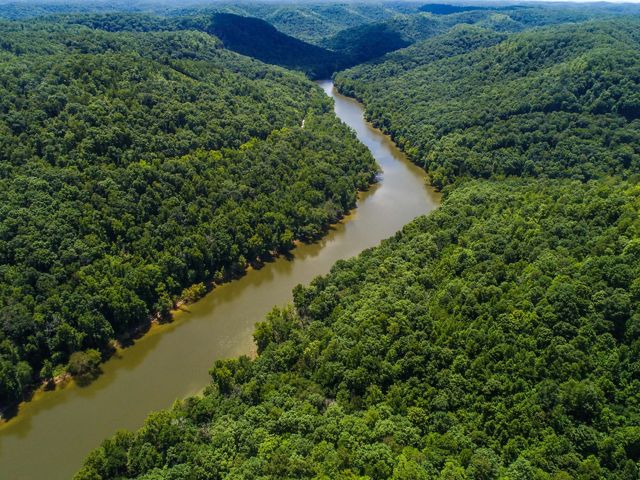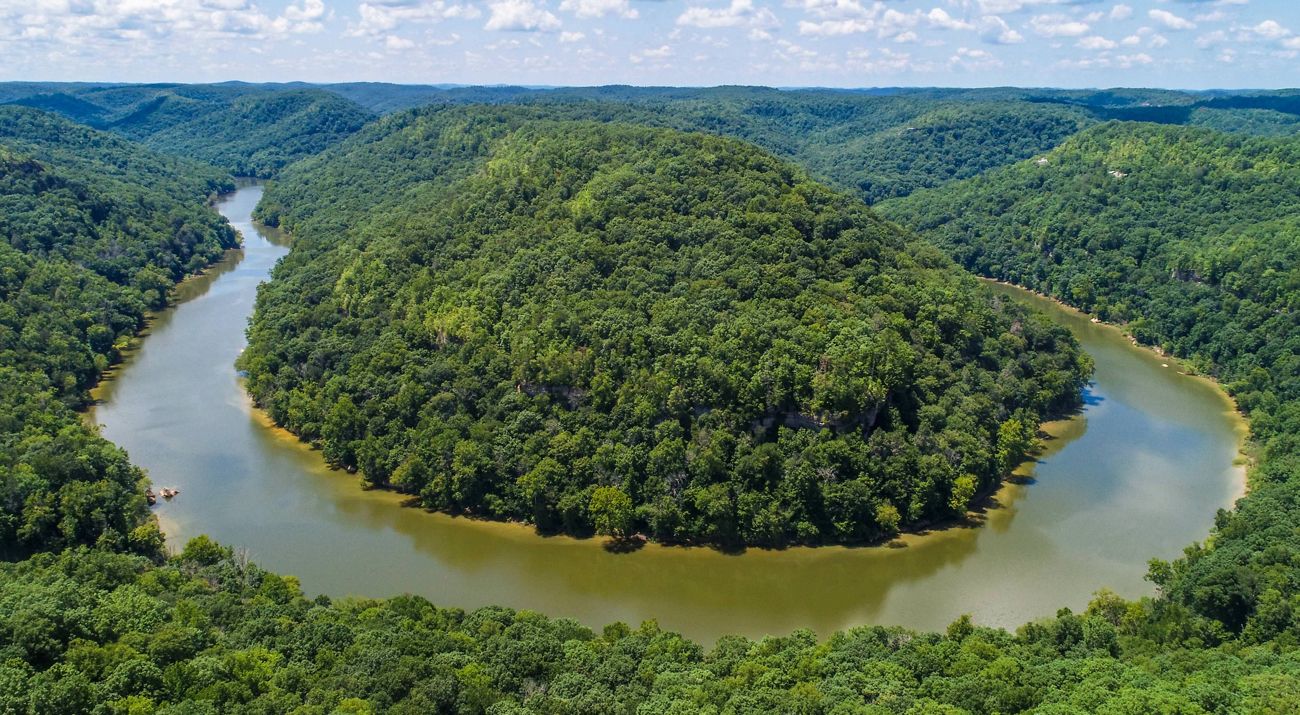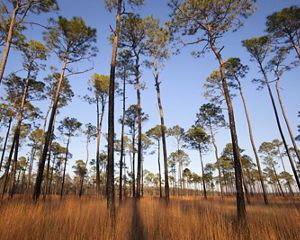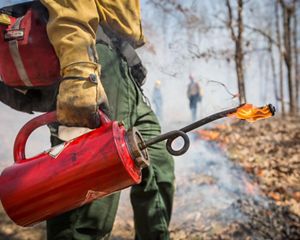Protecting Public Lands
Matt Hudson of the National Park Service works with TNC to protect important lands for all to enjoy.
Matt Hudson is an unlikely park ranger. He went to Tennessee Tech University and majored in history, then went on to Harvard Law School and worked for a corporate firm in Nashville. Mergers and acquisitions, however, weren’t the right fit for him.
“What I knew for sure was that I would like to do something outside,” Hudson says. “Being a park ranger was one job that I could do outdoors while still managing to service my law school loans.”
Becoming a park ranger proved a much better fit for Hudson than corporate law. He spent four years with Tennessee State Parks, and began white water paddling on the Big South Fork and Obed Wild and Scenic River. A position came open at Obed and he jumped at the chance. He’s been at the park now for almost 18 years.
Being a Park Ranger
Hudson is the chief ranger at Obed. He is first and foremost a supervisor for front-line staff. Hudson says he gets out in the field more than a ranger at a larger park would. He and his staff train for high-angle rescue and usually have several river rescues or searches every year.
“Something I’m very proud of is our outreach programs,” Hudson says. “I just really value and think it’s super important that we connect with our local communities and generate a sense of buy-in. If they don’t value us, our initiatives like land protection are likely to fail.”
Hudson says a lot of people don’t even realize there is a national park in their area. One of Hudson’s favorite initiatives is bringing every sixth grader in the county to the park for a full day of rock climbing and paddling. “The whole message is, ‘This is your park,’” he says. “We want to help them love it and care about it. Hopefully that turns into a sense of ownership and willingness to help protect the park. We’re actually seeing a decrease in vandalism and graffiti as a result.”
Hudson and his staff also take the public rock-climbing once a month through a program called Climb with a Ranger. In addition to rescue and outreach, Hudson spends time with other traditional field ranger activities including patrol, resource protection work and wildland fire. A significant portion of his office work focuses on land protection.

Quote: Matt Hudson
I've always been impressed with how professional TNC employees are.
Working with TNC
One way that The Nature Conservancy achieves land protection is by collaborating with partners to identify critical tracts and then working together to ensure that they are protected for future generations. Often the Land and Water Conservation Fund is instrumental in these protection efforts. TNC staff rely on a wealth of knowledge gained from their extensive prior experience protecting tracts of critical importance.
“I have for decades been working with TNC on land protection projects,” Hudson says. “I’ve always been impressed with how professional TNC employees are.” In particular, Hudson has high praise for Gabby Lynch, director of the Tennessee chapter’s land protection program, and Dian Osbourne, director of protection for TNC’s Kentucky chapter. “My interactions with TNC lands folks have been stellar,” Hudson says. “They care about the parks, they know them, and they’re very knowledgeable about land acquisition and related issues.”
What’s next for tracts of land once they have been protected? Hudson says the number one goal is to preserve the wilderness feel of the land. “We want to preserve that sense of wildness, that sense of untrammeled nature,” Hudson says. “First and foremost, these tracts are going to be protected. And often it would be difficult or impossible to achieve that without help from our partners like The Nature Conservancy.”




